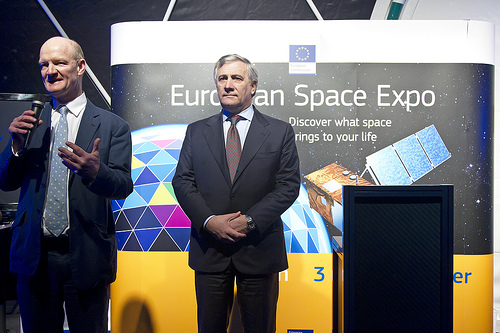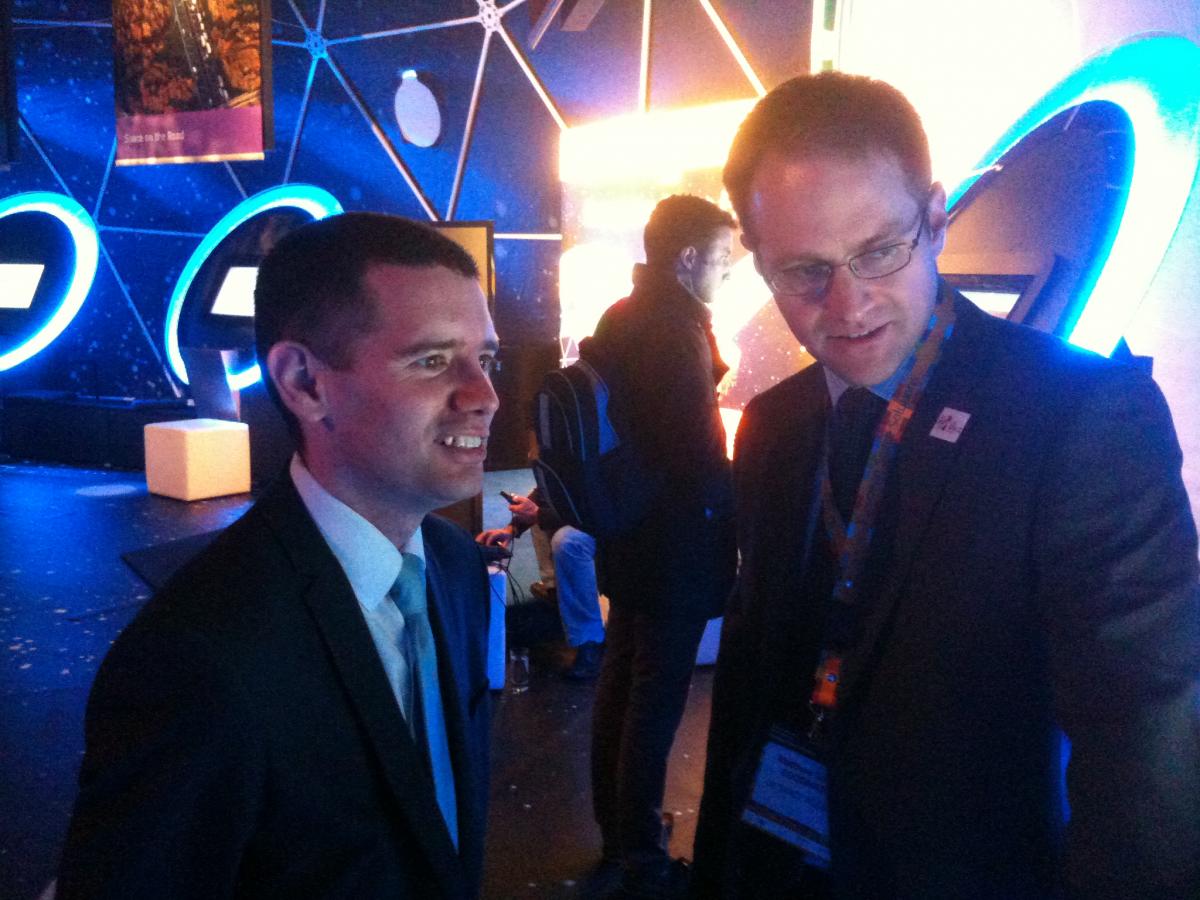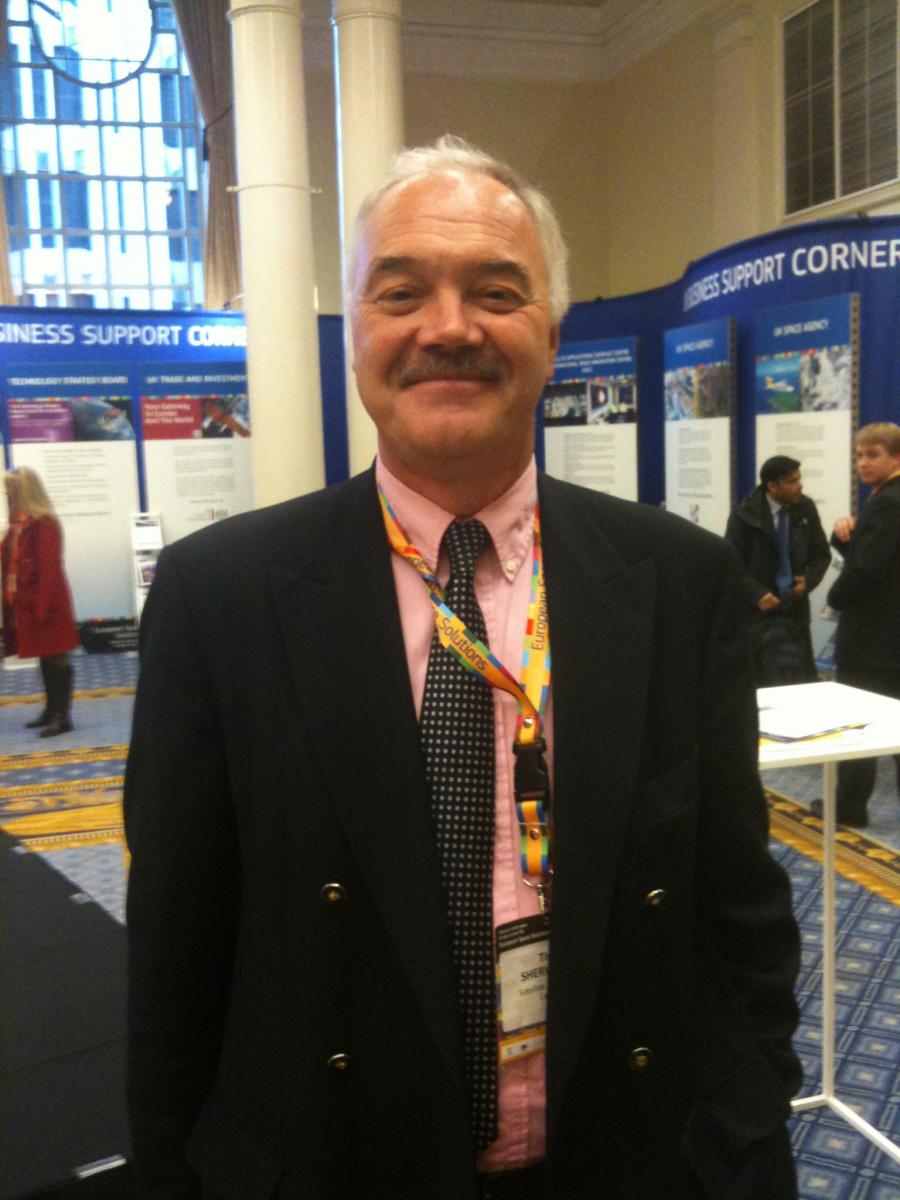The space industry in the United Kingdom is one of the most advanced in the world, and it is seizing the opportunities offered by GNSS technologies. At the December 3-5 European Space Solutions (ESS) conference in London, leading figures hailed Galileo for the accuracy and reliability it promises.
 The ESS conference, organised by the European GNSS Agency and co-hosted by the UK Space Agency and the European Commission, included many displays of the UK’s ambitions in the space sector. The event gathered a great variety of stakeholders, including industry executives, government leaders, application developers and researchers. And they all looked ahead to the new GNSS era.
The ESS conference, organised by the European GNSS Agency and co-hosted by the UK Space Agency and the European Commission, included many displays of the UK’s ambitions in the space sector. The event gathered a great variety of stakeholders, including industry executives, government leaders, application developers and researchers. And they all looked ahead to the new GNSS era.
David Willetts, the British Minister for Universities and Science, noted that in October, when four in-orbit Galileo validation satellites were successfully launched, their payloads were built by Astrium, the UK subsidiary of the European Aeronautic Defence and Space Company (EADS). Surrey Satellite Technologies Ltd is building payloads for the next 22 satellites, and UK companies have wide range of other contracts from the programme, demonstrating Britain’s vibrant and healthy space industry. “As Galileo becomes operational and services start, it is important that the UK continues to capitalise on the opportunity this offers for growth in the space sector and the wider economy,” Willetts said.
Willetts was among many officials to visit the European Space Expo, the travelling exhibition about satellite technology applications, which was held a short walk from the ESS, in Horseguards Parade. The European Space Expo also hosted a special tour for MPs to learn about how satellites are changing our everyday lives.
 Simon Wright, the Executive Vice Chair for the Environment for the UK Parliamentary Space Committee (PSC), hailed the European Space Expo for showing clearly and powerfully the huge opportunities available. “Whether it is navigation or climate monitoring or other services, the UK is playing a leading role in a European context,” said Wright, who is the MP for Norwich South. “It is important that key policy makers are aware of the opportunities made available by Galileo.”
Simon Wright, the Executive Vice Chair for the Environment for the UK Parliamentary Space Committee (PSC), hailed the European Space Expo for showing clearly and powerfully the huge opportunities available. “Whether it is navigation or climate monitoring or other services, the UK is playing a leading role in a European context,” said Wright, who is the MP for Norwich South. “It is important that key policy makers are aware of the opportunities made available by Galileo.”
Penny Mordaunt, MP for Portsmouth North and a member of the Defence and European Select Committees described the European Space Expo as a tool “to fire new generations to study science.” She welcomed the broad range of GNSS applications, adding that Galileo would take navigation to the next level. “The way this stuff is used is massive,” she said. “Some amazing things that have benefited the human race have come from investing in space technology. We can improve the quality of life for people, we can do so many things by enabling this kind of discovery (or innovation) to continue.”
Catapult looks to Galileo
One of the leading figures from the UK space sector at the ESS was the newly-named Chairman of Satellite Applications Catapult, Tim Sherwood. Catapult, to be based at Harwell in Oxfordshire, is a government-backed centre supporting satellite applications, with the aim of capturing a 10% share of the £400 billion global space market predicted by 2030.
 “The services Galileo brings will be critical to us,” said Sherwood. He said the key to growing the sector was to find services and applications that are best able to exploit the Galileo’s stronger, more precise signals. “What does the general public see? They see a signal, and don’t care where it comes from. But it is more recent, more accurate and reliable. And it is under civilian control and security of supply,” Sherwood said.
“The services Galileo brings will be critical to us,” said Sherwood. He said the key to growing the sector was to find services and applications that are best able to exploit the Galileo’s stronger, more precise signals. “What does the general public see? They see a signal, and don’t care where it comes from. But it is more recent, more accurate and reliable. And it is under civilian control and security of supply,” Sherwood said.
Sherwood said now was the time to talk about exploiting Galileo. “You have to create the demand, deliver on schedule, and make it easy to get hold of,” he said. He compared the potential for Galileo services to smartphone applications. “There would not have been a rush on smartphone apps if there was not smartphone,” he said. “The key is to grow the top line, to be customer-centric. A lot of customers are technology indifferent. You have to work back to the coalface and look at what the customer wants. You want a pull from the customer and not a push from us. So let’s get the customers wound in.”
Media note: This feature can be republished without charge provided the European GNSS Agency (GSA) is acknowledged as the source at the top or the bottom of the story. You must request permission before you use any of the photographs on the site. If you do republish, we would be grateful if you could link back to the GSA website.